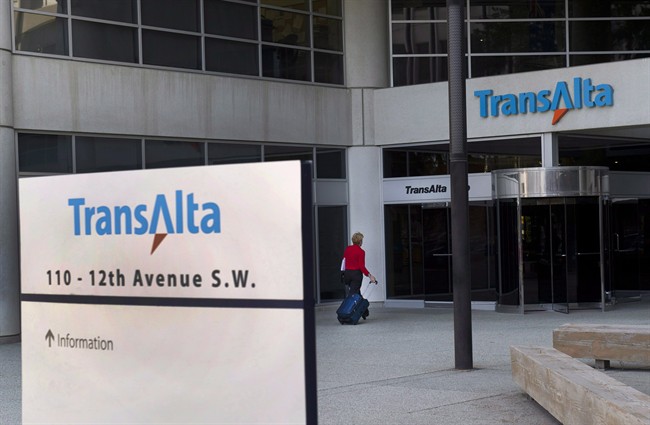CALGARY – TransAlta Corp has slashed its dividend by almost 78 per cent in a move to preserve cash as the Alberta power generator readies itself for a transition away from coal to natural gas and renewables.

The cut in the quarterly dividend, to four cents from 18 cents, is expected to save the company about $150 annually.
TransAlta says it doesn’t expect to sell any shares to shore up finances in 2016, but does plan to raise between $400 million and $600 million in debt to fund future obligations.
The Alberta government’s climate change plan calls for a phase-out of the 6,200 megawatts of coal-fired power generation in the province by 2030, with 30 per cent of that capacity to be replaced with renewable energy.

Get weekly money news
The government is working to select a facilitator who will negotiate with the power producers and hammer out details of the transition plan.
TransAlta chief executive Dawn Farrell said she expects someone to be named to the position by the end of January, with negotiations starting soon after.
“The government confirmed for us that that decision will be public by the end of January at the latest,” Farrell said in an investor call Friday.
She said the government has indicated it is aiming to reach a deal on phase-out by May, but given the complexity of the industry she thinks it will take a year to reach an agreement.
A key aspect of the negotiations will be the issue of compensation for the early closure of coal power plants, with the government committing to treat power producers “fairly” and not “unnecessarily strand capital.”
Farrell said she’s encouraged by the government’s commitments but, given the uncertainty of negotiations and of future coal power revenues, the company has decided to free up the extra capital.
“We really don’t know what the outcome of these negotiations will be,” said Farrell. “It was really uncertainty rather than actual negativity that we calculated in our models.”
She said the low Canadian dollar is adding to the uncertainty and will increase the cost of any transition because much of the equipment required is priced in U.S. dollars.

Comments